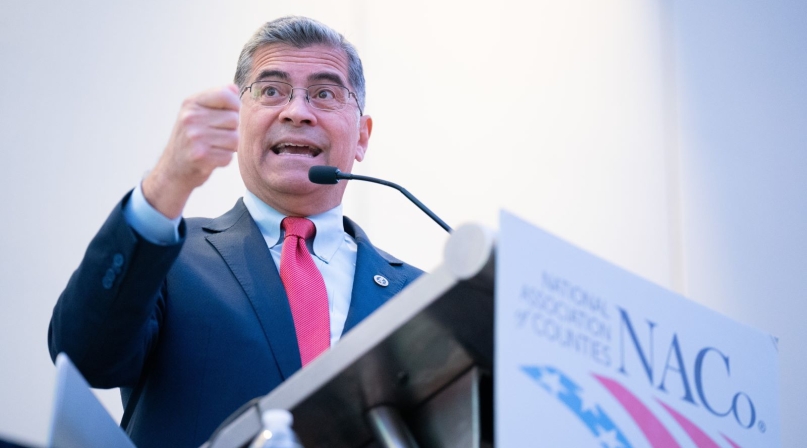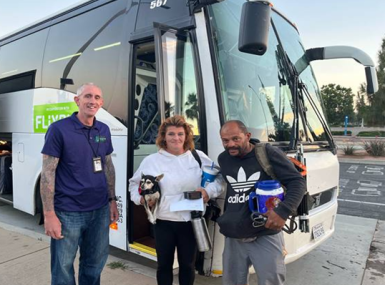Intergovernmental partnerships offer strategy for mental health crisis

Key Takeaways
Federal, state and local government need to work together to prioritize prevention in addressing the nation’s mental health crisis, according to U.S. Department of Health and Human Services (HHS) Sec. Xavier Becerra.
Waiting to treat an individual until they reach a breaking point in their physical or mental health isn’t a sustainable approach; it’s more expensive for healthcare systems and it’s costing people their livelihood, Becerra said.
“Diabetes is about to take your leg, your vision,” Becerra said. “You have heart disease, you just got laid off because you had a heart attack and survived it. You’re now in recovery and you can’t go to work. We wait until the illness hits you, and that’s expensive. How about we change our healthcare system from one that treats illness to one that sustains wellness?”
Wellness is also about mental health, Becerra said.
Suicide is the second leading cause of death for people aged 10-24, and ER visits are on the rise for children even younger; CDC data shows that in 2020, there was a 24% surge in ER visits for children aged five to 11 experiencing mental health crises.
In an effort to combat the youth mental health crisis, Becerra said that HHS is looking to partner with schools to establish behavioral programs on schoolgrounds.
“A nine-year-old is saying ‘I don’t think I’m going to live anymore.’ We can’t wait,” Becerra said. “… It’s easier to build strong children than to repair broken men,” he added, quoting Frederick Douglass.
The 24/7 suicide and crisis lifeline 988, similar to the 911 system, provides professional support to people who reach out during a mental health crisis. It is a resource created with youth in mind. The hotline is available through call and text for increased accessibility and is a way for people to seek help without feeling stigmatized or scared, particularly young children who might feel as if they don’t have anywhere else to go, according to Becerra.
The CDC’s Comprehensive Suicide Prevention Program is another federal funding source created to help groups disproportionately affected by suicide, including youth, veterans, tribal populations, people living in rural areas and the LGBTQ+ community. The CSP funds 24 programs across the country to implement and assess a public health approach to suicide prevention — one of the programs is through Bexar County, Texas’ hospital district.
“We need to make sure that we're meeting people where they are — leaning in, in our schools, in our communities,” said Andi Lipstein Fristedt, deputy director of policy, communications and legislative affairs, for the CDC.
The co-occurrence of substance use disorder and mental health must be addressed, Becerra said. He highlighted HHS’ support of harm reduction programs at the county level, including those that distribute fentanyl strips, which is something the department was previously prohibited from funding.
“The facts on the ground are overwhelmingly positive with that and we try to prevent people from committing too much harm for themselves while they’re in the state of addiction,” Becerra said. “… Drug use is a disease, and stigma isn’t going to get rid of it.”
Featured Initiative
NACo Commission on Mental Health and Wellbeing
(2023-2024) Counties increasingly handle direct mental health service. NACo’s Commission on Mental Health and Wellbeing developed reports and united county leaders to address the mental health crisis through key policy priorities.

Related News

Insights from county leaders on the future of early childhood care and education
NACo's Prenatal-to-Three breakfast and listening session gathered county leaders to identify barriers, explore solutions and support local leaders advancing their priorities.

Team approach, website help California county tackle homelessness
Riverside County, Calif. created a multidisciplinary team to better and more efficiently serve its unsheltered population and share success stories and data through a website.

Ohio county boosts community youth programs with ARPA funding
Hamilton County, Ohio invested ARPA dollars in community organizations through the INSPIRE Youth initiative.
